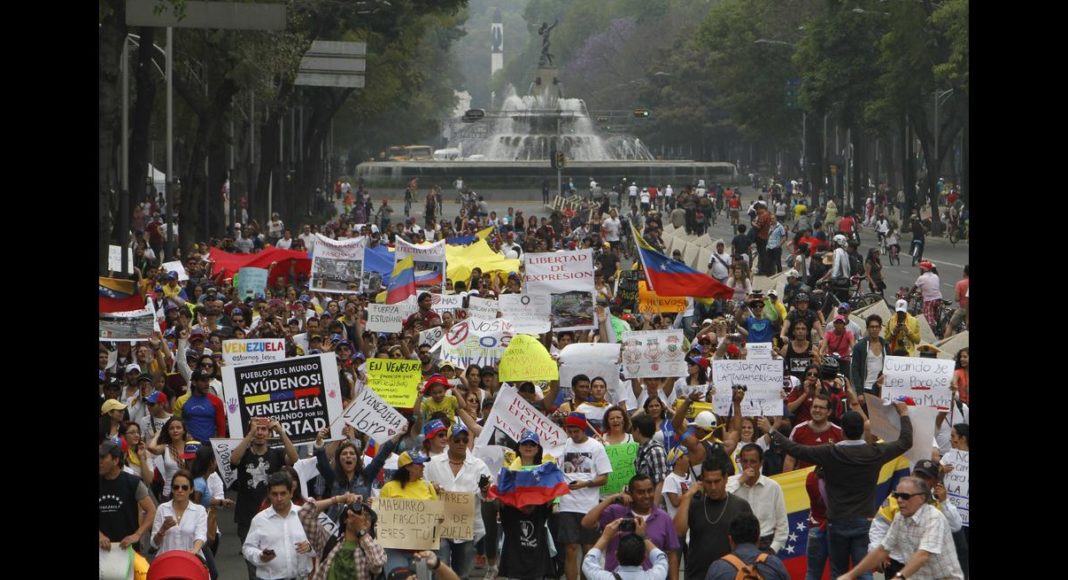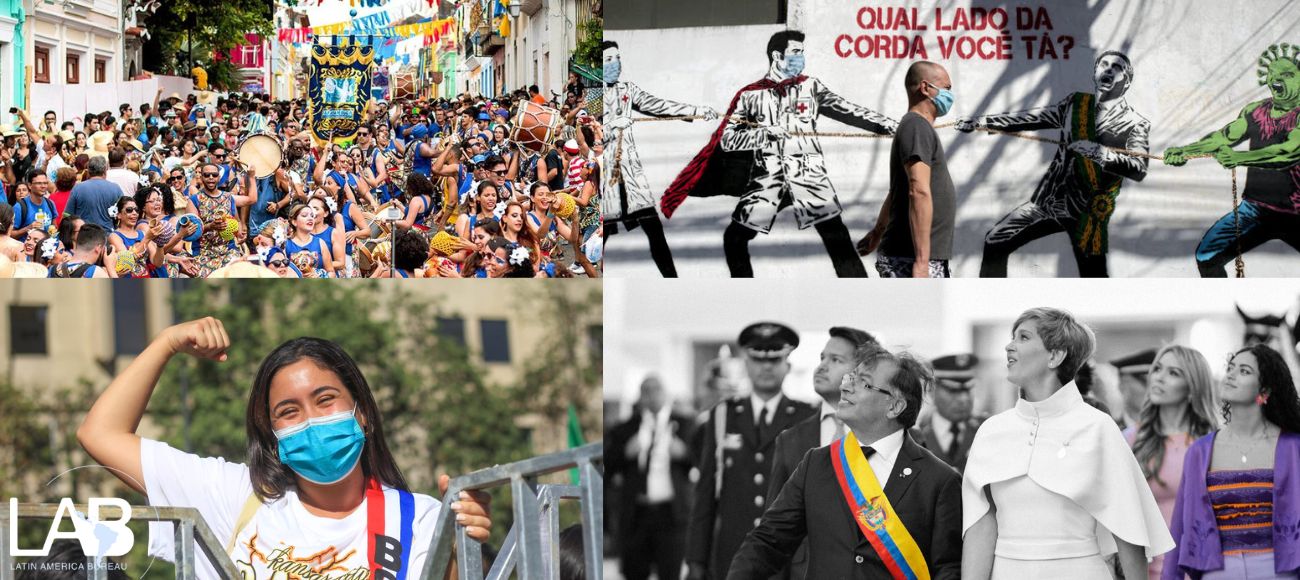
Venezuela — a view from the grassroots part 3
Previous article
Next article
La Mezcla

Here LAB collects snippets of news, reviews, comment… everything that doesn’t belong elsewhere. Dip into it, and enjoy!
Recent La Mezcla Posts
- The changing aesthetics of power in Colombia
- Hugh O’Shaughnessy Obituary
- Chile: una revolución de hembras
- Is the coronavirus epidemic worse in Brazil or in the UK?
- No carnival in Recife
